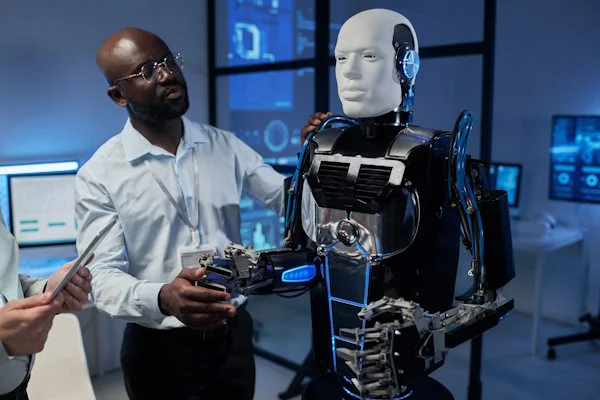In today’s fast-paced world, staying competitive in manufacturing isn’t just about producing more — it’s about producing smarter. That’s where Industrial Robotics steps in. From automotive assembly lines to food processing plants, the rise of intelligent machines is transforming the very foundation of how goods are made.
Industrial robotics refers to the use of automated, programmable machines capable of carrying out complex manufacturing tasks with speed, precision, and efficiency. These machines are not limited by fatigue or human error, which allows companies to meet rising production demands without compromising quality. But what makes industrial robotics the game-changer it is today?
The Power of Automation
Automation isn’t a buzzword anymore — it’s a necessity. Companies that fail to adopt automation risk falling behind. Industrial robotics enables manufacturers to automate repetitive, dangerous, and physically demanding tasks. For instance, robotic arms can operate 24/7 on production lines, assembling components, welding parts, or packaging products with consistent accuracy.
This level of reliability significantly reduces defects and waste, which directly cuts costs. Over time, these robots pay for themselves, creating a massive return on investment.
Precision Meets Intelligence
Modern industrial robots are not just fast; they’re smart. Thanks to advancements in machine learning and AI, these systems can now adapt to changes in their environment. Whether it's adjusting the force applied when assembling delicate components or optimizing their movements in real-time, today's industrial robotics systems are incredibly flexible.
They can also be integrated into larger smart manufacturing ecosystems. Sensors and IoT connectivity allow for real-time data collection and performance monitoring. This data helps manufacturers identify bottlenecks, predict maintenance needs, and improve overall workflow efficiency.
A Solution for Labor Shortages
One of the biggest challenges industries face is the shortage of skilled labor. Industrial robotics offers a powerful solution. Rather than replacing jobs, these machines often take over the roles that are hard to fill due to their repetitive or hazardous nature. This frees up human workers to focus on more strategic and value-added tasks like quality control, programming, and innovation.
As a result, companies experience higher productivity while creating safer and more engaging work environments for employees.
Adapting Across Industries
Industrial robotics is no longer confined to car manufacturing. Sectors like electronics, pharmaceuticals, agriculture, and even fashion are now adopting robotic technologies. In electronics, robots assist with micro-soldering and circuit testing. In agriculture, they handle planting and harvesting with unmatched precision. The flexibility of these machines makes them suitable for nearly any industry.
The Future is Now
The global push toward smart factories, also known as Industry 4.0, has placed industrial robotics at the center of this evolution. With continued innovation, costs of robots are dropping, making them more accessible to small and mid-sized manufacturers.




